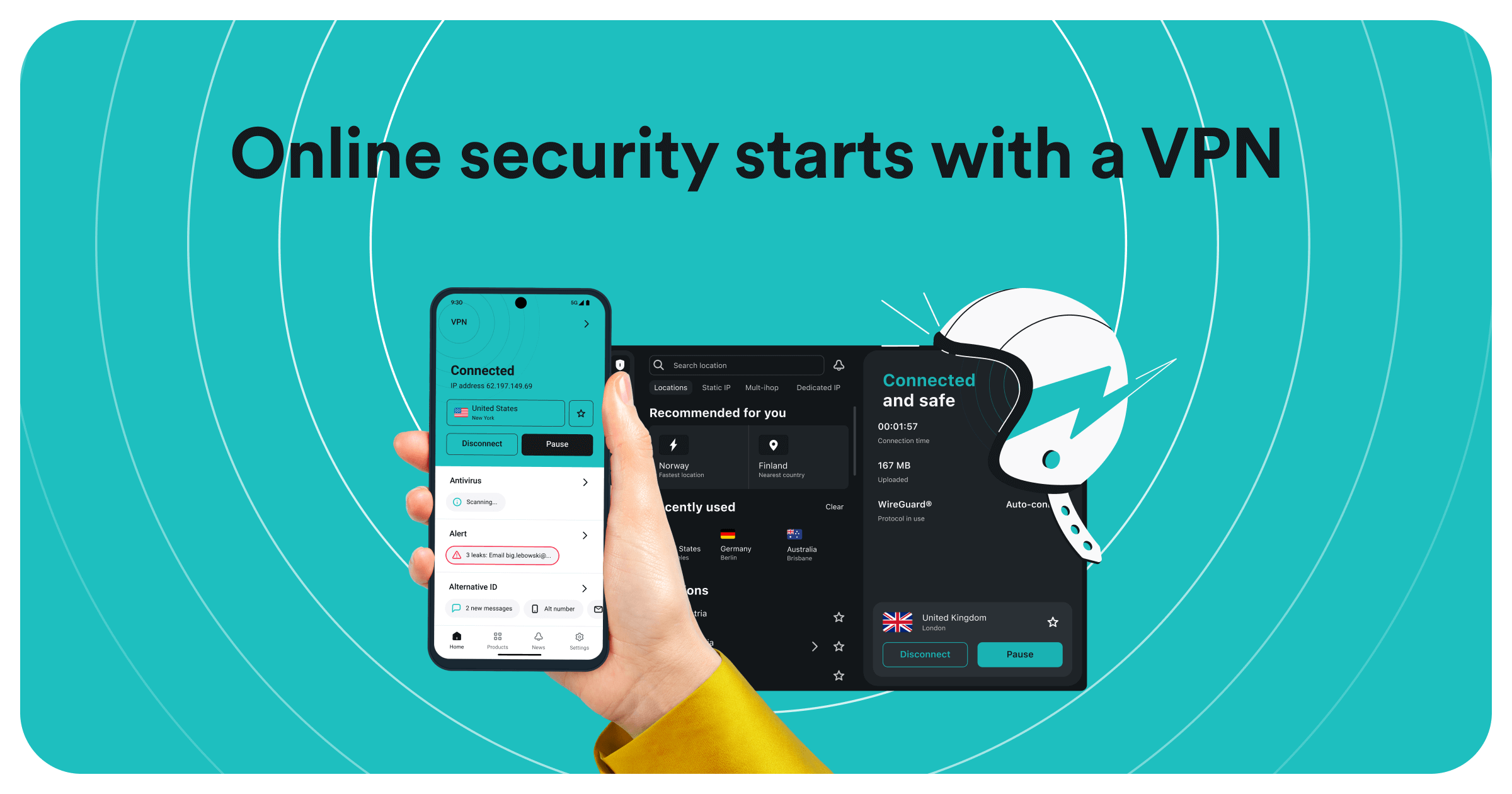What Are the Best VPNs for China in 2026?
 Anias Stambolis-D’Agostino
Anias Stambolis-D’AgostinoLearn Chinese in China or on Zoom and gain fluency in Chinese!
Join CLI and learn Chinese with your personal team of Mandarin teachers online or in person at the CLI Center in Guilin, China.
Because of China’s internet censorship laws, you may need to use a VPN when in the country if you plan to surf the international web. There are many options available, so it’s important to make an informed decision in order to choose the most reliable service. Read on for CLI’s guide to choosing the best China VPN in 2026.

What is a VPN?
A VPN, or Virtual Private Network, is a digital software service for your smart device that establishes a private and protected internet connection. By connecting to a remote proxy server, VPNs disguise your device’s Internet Protocol (IP) address by making it appear as if you are connecting from another country.
In addition to allowing you access to content only available in other regions, VPNs also make data traffic invisible to your Internet Service Provider (ISP) and other outside parties.

Virtual Private Networks, or VPNs, allow you to disguise your IP address by connecting through a remote proxy server.
Why use a VPN?
There are several reasons why some internet-users choose to use VPNs.
- VPNs protect personal data, particularly when using public or shared wifi, since unencrypted internet traffic can be observed by anyone on your network.
- VPNs make your online behavior virtually untraceable, since connecting through a VPN’s remote server unlinks your activity from your computer’s IP address.
- VPNs provide a secure channel for data transfer and may therefore be useful when exchanging private information such as financial or otherwise sensitive files.
- VPNs help internet users bypass geographic restrictions and access websites that are only available in certain countries.
By connecting to a remote VPN server outside of your country, your online geographic location is reconfigured, allowing you access to region-specific content that may only be available to those whose IP addresses correspond with locations within your home country or region.

Using a VPN allows you to access content that may not be available on the Internet in the region where you’re located.
Why do you need a VPN in China?
You may have heard of the Great Wall, but what about the Great Firewall? China’s broad internet censorship system was put into place by the Chinese government during the 1990’s to limit residents' access to certain media and (allegedly) protect them from harmful disinformation on the World Wide Web.
Because of this sophisticated virtual wall, many internet-users in China utilize VPNs to access blocked sites. If you’re traveling in the Middle Kingdom and want to keep up with your favorite Netflix shows or need to check your Gmail for work, connecting to a VPN associated with an IP address that is located in a country with internet freedom will grant you access.
Another reason to use a VPN in China is to conceal your internet behavior from outside surveillance, since your information is either unlogged or unavailable to third parties outside of your VPN provider.

China’s booming domestic Internet is, in many ways, in fact an "intranet," only granting domestic users access to homegrown and monitored websites while restricting access to non-Chinese sites.
Blocked sites in China
So, which websites exactly are blocked in China? Before deciding whether or not to use a China VPN, check out this nonexhaustive list of popular websites and apps restricted by the Great Firewall as of this writing in 2026:
- Gmail
- Youtube
- Spotify
- WordPress
- Quora
- Tumblr
- The New York Times
- The Wall Street Journal
- The Economist
Keep in mind that many websites are newly blocked or unblocked in China every day. Additionally, some websites that are not technically restricted may display limited information or suffer from extremely slow load times.
Google, meet Baidu
With so many popular western websites hidden, how does the Chinese internet work? It is worth noting that China has its own, powerful versions of search engines, social media sites, and video streaming services, all of which are heavily utilized by domestic netizens.
For example, Baidu is the equivalent of Google; BilliBilli, Youku and IQIYI are similar to YouTube; and WeChat is China’s most widely used messaging and content-sharing platform. These Chinese-run websites all work swiftly and smoothly across the country, providing users access to a vast sea of domestic, mostly Chinese-language internet content.
Remember, if you are serious about learning Chinese and understanding modern China, utilizing the Chinese internet and immersing yourself in Chinese popular media is an excellent way to learn more about the culture and integrate into society.
Note that VPNs are sometimes used by those located outside China to access Chinese websites. Since certain domestic Chinese sites don’t run as smoothly outside China as they do within the country, Chinese speakers in other countries sometimes gain access to their favorite Chinese sites by setting their IP address to a location within China using a VPN.
VPNs in China: Legal or not?
You may be wondering if using a VPN is a crime in China. The legality of VPNs has long been a grey area under Chinese law.
It is generally understood that VPNs themselves are not illegal when used by individuals, however the act of accessing blocked sites is technically a crime. That said, most individual VPN-users fly under the radar, and some companies and universities even utilize official, government-approved VPNs on their campuses.
There is some evidence that VPNs have faced increasing scrutiny in recent years and, as such, it isn’t uncommon for certain services to face challenges such as dropped connections or pockets of unavailability.

VPNs are a legal grey area in China.
Best China VPNs for 2026
Anyone considering using a VPN will be happy to know that there are many services available, with new free and paid options entering the market every season.
However, not all VPNs are created equal. Below are our top three VPNs in 2026:
#1: Surfshark VPN
Surfshark VPN ranks high on our list for its combination of affordability, strong security features, and reliable performance—especially for users in restrictive regions.” It offers access to over 3,200 servers in 100+ countries, unlimited simultaneous connections, and includes useful tools like NoBorders (for bypassing censorship), Camouflage Mode, and CleanWeb (ad, tracker, and malware blocking).

Surfshark is a fast, affordable VPN with strong privacy features and CLI's top recommendation for a VPN in China.
Key Features:
- NoBorders mode and obfuscated protocols to help bypass the Great Firewall and other censorship
- Unlimited simultaneous connections, letting you protect all your devices under one account
- CleanWeb for blocking ads, trackers, and malware at DNS level
- MultiHop, IP rotator, GPS-spoofing (Android), kill switch, split tunneling (Bypasser), and pause-VPN features
- Audited privacy practices and strong cryptography: AES-256-GCM, OpenVPN, IKEv2, WireGuard, RAM-only servers
- Trusted recognition: Awards including “VPN Solution of the Year” (CyberSecurity Breakthrough Awards 2022), CNET Editor’s Choice, and PCWorld Verified
Price:
- 1 Month: €15.45/month
- 12 Months: €3.19/month
- 24 Months: €1.99/month
Free trial:
- 7 Days (via Apple App Store or Google Play)
#2: LetsVPN
Established to provide seamless and secure internet access, LetsVPN has earned a reputation for being a reliable and efficient VPN service.

LetsVPN is a great choice and our top recommendation for those seeking full access to the internet in China.
LetsVPN is an excellent choice for those seeking high-speed, secure, and versatile VPN services.
Key Features:
- No Log Policy: Ensures that your browsing history is neither stored nor shared with third parties.
- Global Servers: Offers servers worldwide, providing fast and reliable streaming and browsing services.
- AI Intelligent Connection: Automatically connects you to the fastest network nodes, ensuring a smooth internet experience.
- Cross-Platform Compatibility: Supports all major devices and operating systems, allowing multiple devices to connect simultaneously under one account.
- 24/7 Customer Support: Provides around-the-clock customer service with over 100 real-person representatives and network engineers available.
Price:
- 1 Month: $9.99/month
- 12 Months: $5.99/month
- 24 Months: $3.99/month
(Prices are estimated and should be confirmed on the official website)
Free trial:
- 72 hours
LetsVPN stands out in the VPN market by offering flexible short-term memberships, robust privacy measures, and seamless multi-device support, making it a strong choice for users who prioritize security and convenience.
For more detailed information and to get started, visit LetsVPN's official website.
#3: NordVPN
Established in 2008, NordVPN has earned a reputation for being a trustworthy and reliable China VPN.
Key Features:
- No log-policy, which means your surfing history is not only not shared with outside parties, but never even stored to begin with
- Servers around the world and decently-fast streaming services
Price:
- 1 Month: $11.95/month
- 12 Months: $4.92/month
- 24 Months: $3.71/month
Free trial:
- 7 Days
Your Pre-China Checklist
As seasoned China-travelers will tell you, deciding whether or not to use a China VPN is an important step on your pre-departure checklist.
If you do plan to use a VPN, be sure to install the service on your device before you set off, since downloading one within China’s borders can be difficult and sometimes impossible.
Navigating China’s internet can be challenging if you’re not prepared. Fortunately, there are many ways to make life easier for yourself when living, working, or traveling in the Middle Kingdom.
After getting internet-ready, brush up on your Chinese and start communicating with locals by enrolling in CLI’s online Chinese lessons before you go!

If you plan to use a VPN, make sure to install it before starting your China adventure.
| Hànzì | Pīnyīn | Definition |
|---|---|---|
| 虚拟专用网络 | xūnǐzhuānyòngwǎngluò | VPN |
| 虚拟私人网络 | xūnǐsīrénwǎngluò | VPN |
| 安装 | ānzhuāng | to install |
| 软件 | ruǎnjiàn | software |
| 防火长城 | Fánghuǒ Chángchéng | The Great Firewall |
| 翻墙 | fānqiáng | to hop the wall (to use a VPN) |
| 公共互联网 | gōnggòng hùliánwǎng | public internet |
| IP地址 | IP dìzhǐ | IP address |
| 服务器 | fúwùqì | (internet) server |
| 网络隐私 | wǎngluò yǐnsī | internet privacy |
| 匿名 | nìmíng | anonymous |
| 隐私权 | yǐnsīquán | privacy rights |
| 谷歌 | Gǔgē | |
| 百度 | Bǎidù | Baidu, a popular Chinese search engine |
| 互联网审查 | hùliánwǎng shěnchá | internet censorship |
| 搜索引擎 | sōusuǒ yǐnqíng | search engine |
| 浏览器 | liúlǎnqì | internet browser |
| 封禁 | fēngjìn | to ban (a movie or website) |
| 网友 | wǎngyǒu | internet user |

Anias has lived, studied and worked in China and Taiwan for over 7 years. During this time, she has developed an expertise in Chinese culture and contemporary Chinese society. Anias holds a BA in East Asian Studies and Chinese Language from Bard College. She currently lives in Taiwan and is fluent in Chinese.
















